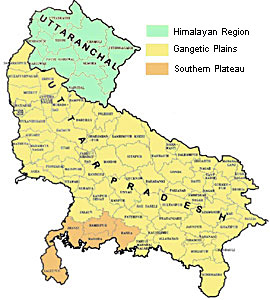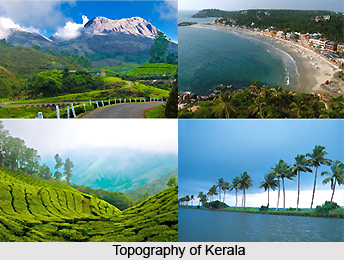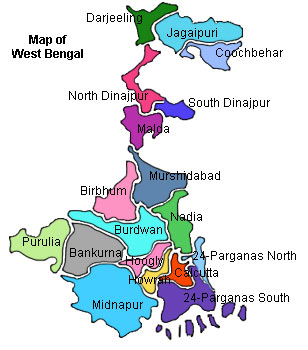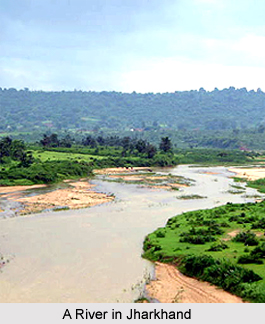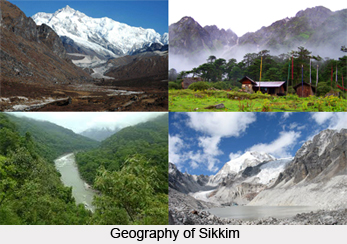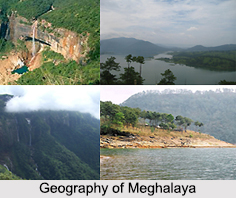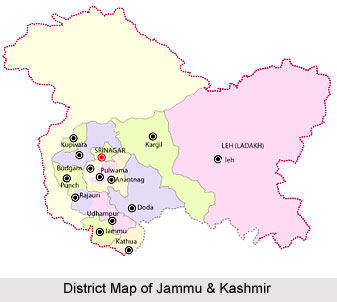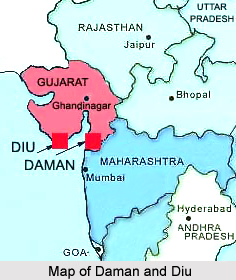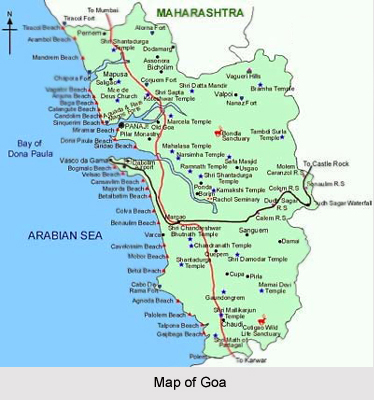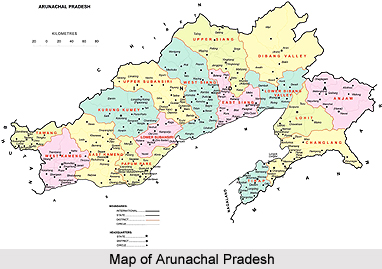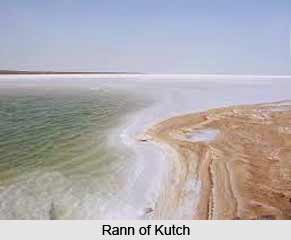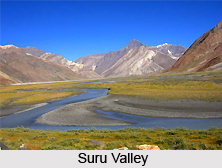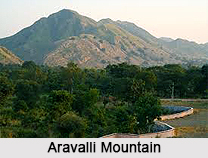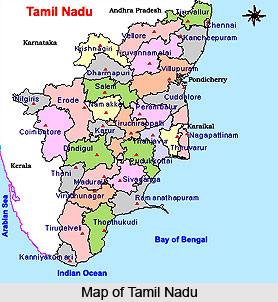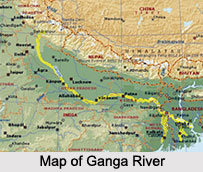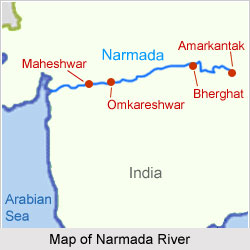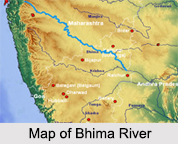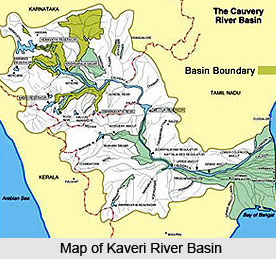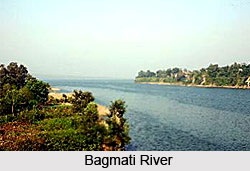 Bagmati River is one of the snow fed rivers which is considered holy by Hindus and Buddhists. The bank of this river enshrines a number of Hindu temples. Bagmati River finds mention as Vaggumuda in Vinaya Pitaka and Nandabagga. It also finds mention as Bahumati in Battha Suttanta of Majjhima Nikaya.
Bagmati River is one of the snow fed rivers which is considered holy by Hindus and Buddhists. The bank of this river enshrines a number of Hindu temples. Bagmati River finds mention as Vaggumuda in Vinaya Pitaka and Nandabagga. It also finds mention as Bahumati in Battha Suttanta of Majjhima Nikaya.
Origin and Course of Bagmati River
It originated where three headwater streams meet at Baghdwar above the southern edge of the Shivapuri Hills about 15 kilometers northeast of Kathmandu. The river flows southwest through terraced rice fields in the Kathmandu Valley. The flow gets interrupted in various places, including at Pashupatinath Temple, due to resistant rock strata.
Beyond the temple, the river flows south then turns west and then enters Kathmandu`s urban area. Then again Bagmati turns south and the Vishnumati enters from the right at Teku Dovan.
After flowing south with many curves, the river reaches the edge of the Kathmandu Valley and enters Chobar Gorge near the Dakshinkali temple complex. Then Bagmati crosses the lower Sivalik Hills before reaching the Terai, and then crosses into India at Dheng. The river flows across Bihar districts Sitamarhi, Sheohar and finally Muzaffarpur.
Religious Significance of Bagmati River
Bagmati River holds a prominent position amongst the Hindus. Hindus are cremated on the banks of this holy river, and Kirants are buried in the hills by its side. As per the Hindu tradition of the Nepalese, the dead body must be dipped three times into the Bagmati River before cremation. The chief mourner also takes a holy river-water bath immediately after cremation. It is believed that the Bagmati River purifies the people spiritually.
Temples on the Banks of Bagmati River
The banks of this holy river shelter various temples. The temple of Pashupatinath is nestled on an outcrop above the river north of Kathmandu. It is regarded as one of the holy places of Hinduism. Gokarneswor temple located at the north of the Kathmandu Valley is also an important holy shrine.
Threats to Bagmati River
The water of Bangmati River in Bihar faces lots of challenges due to solid waste, industrial effluents, encroachment and rampant construction along the banks. The river receives large amounts of untreated sewage and large levels of pollution in Kathmandu as well. However, in 2014, it was declared that the river is clean after a long effort of 14 years.
